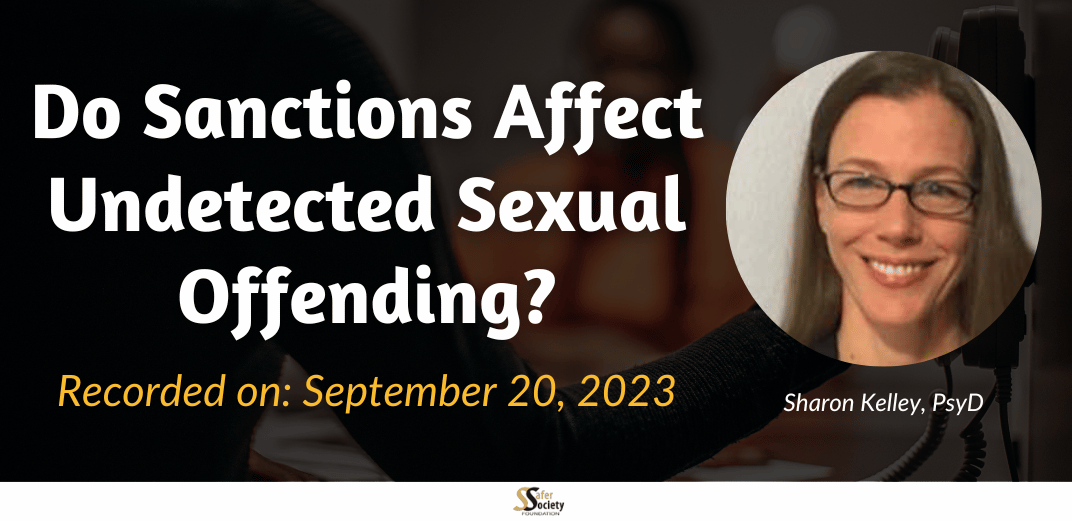
Do Sanctions Affect Undetected Sexual Offending?
This webinar is for professionals involved in the assessment and treatment of individuals convicted of sexual crimes. This may include mental health professionals, law enforcement personnel, administrators, and attorneys working within the legal and correctional systems.
Not every sex crime is reported to authorities. This simple fact has caused considerable fear in society, leading to questions about how much we really know about sexual abuse and those who perpetrate it. For those researching sex crimes, it becomes even more complicated: the rate of actual offending (both detected and undetected) appears to vary widely depending on who is being studied, how undetected sexual offending is defined, and how undetected sexual offenses are measured.
In this webinar, Dr. Kelley reviews the results of a study of 200 men assessed as being at high risk and residing in a civil commitment program. The study captures the rate of undetected sexual offenses before and after formal sanctions for detected sexual offenses.
Dr. Kelley suggests ways in which the results of this study will improve how we work with offenders going forward, including in risk assessment.
Who's Presenting

Sharon Kelley, PsyD
Dr. Kelley has been completing risk assessments in the field of sexual offending for the past 20 years. She is currently employed as a forensic psychologist with the Sand Ridge Evaluation Unit in Madison, Wisconsin. In addition to this, she maintains a private practice completing evaluations and trainings, and she has volunteer positions on the ATSA Board of Directors and the ATSA journal’s editorial board. She is a licensed psychologist in Wisconsin, Minnesota, Iowa, and California. Both with her practical work and research projects, she is interested in empirically-based risk assessments, best evaluation practices, and understanding evaluator decision-making.
